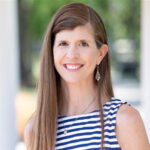This post was written by NCTE member Dorothy C. Suskind.
There is a critical story behind “the science of reading,” one whose players and plotlines have been misconstrued by political agendas. As a former classroom teacher and reading specialist and current literacy professor, I’d like to interrogate four themes threading this narrative.
#1. Hijacking Terminology
Words have power. The term science connotes credibility, but it also represents evolution and diversity. The “science of reading” has stripped away the dynamic interplay of experiences that grow a child into a reader and a writer and centered the literacy process solely atop phonics. This narrow plotline disregards the impact of writing, comprehension, culture, play, mentor texts, family, and the power of a teacher-researcher to individualize instruction.
Though some prefer a narrow survey from their designated lane, there are in fact many sciences. There is a science of Whole Language, a science of Balanced Literacy, and a science of writing. Each of these sciences is supported by countless refereed, qualitative, and quantitative studies easily accessible through academic databases if one takes the time to look. This work stands on the shoulders of giants in the field like Ken Goodman and Marie Clay, change-agents whose work has been mischaracterized and villainized by those who simply have not done their reading homework. Even psychologists like Mark Seidenberg are getting in on the action, saying “Not much science there” in reference to the National Council of Teachers of English. It’s reckless to discount the peer-reviewed research, complex historical understandings, and work of practitioners in the field represented by our nation’s oldest literacy organization for educators of early childhood through graduate school.
# 2. Reframing the National Reading Panel
The National Reading Panel is often referenced to justify programmatic, “science-based” decisions without interrogating the critical stories behind that work. From its inception, the largely philosophically in-sync panel adopted a three-part, distinct, and sequential model of reading to the exclusion of other frameworks. Situated within this narrow perspective, working under significant time constraints, and operating with little support staff, it limited its review to six subgroups to the exclusion of other essential areas, including early intervention, writing, and access to literature. The panel has been touted as having reviewed over 100,000 studies; in reality, only 428 were analyzed, with the phonics subcommittee reviewing only 38, excluding all research that did not match their self-imposed, quasi-experimental and experimental studies criteria despite the robust practice of using qualitative methods in educational research. It follows that Joanne Yatvin, the only panel member to have a spent a career in elementary schools, authored the minority view which proffered a warning, request, and tragic foreshadowing of where we are now—“I ask Congress not to take actions that will promote one philosophical view of reading or constrain future research in the field on the basis of the Panel’s limited and narrow set of findings.”
#3. Attacks on Higher Education and the Problems with NCTQ
Emily Hanford, in her op-ed “Why Are We Still Teaching Reading the Wrong Way?,” asserts, “The National Council on Teacher Quality reviewed the syllabuses of teacher preparation programs nationwide and found that fewer than four in 10 taught the components of effective reading instruction. . . . ”
Let’s break that proclamation down. NCTQ was created in 2000 by the Thomas B. Fordham Institute as an advocacy group, not a research institution, with its primary purpose being to lobby for and legitimize alternative teacher certification. Floundering financially at its inception, it got its sea legs the next year thanks to a five-million-dollar grant from the Department of Education. Much of that money was funneled into what is now the American Board, where you can “become a certified teacher in a year or less” with no classroom experience required prior to securing your first teaching job. In order to make the sale, NCTQ attempted to discredit universities’ teacher education programs by creating a “study,” in which they reviewed syllabi using a checklist that suspiciously excluded criteria for instructional quality and student learning.
Wary of the methodology, many universities declined to participate, leaving NCTQ filing open-records requests and combing the internet for syllabi samples. The results were entertaining, as cited by Darling-Hammond: “Columbia was rated highly for the selectivity of an undergraduate program that does not even exist. . . .” As part of that study, NCTQ reviewed early literacy course textbooks, deeming the majority unacceptable, including 60 written by Reading Hall of Fame members, yet approving seven of the books written by Louisa Moats, a literacy advisor to NCTQ. The plot thickens. As reported by Rachel Gabriel, the three textbook reviewers served as trainers for Moats’s lucrative LETRS program, which the Department of Education’s What Works Clearinghouse found failed to improve student reading comprehension—leaving many to once again question NCTQ’s “science.”
#4. “The Sky Is Falling” atop Declining NAEP Scores
“The sky is falling,” scrolls across politicians’ teleprompters and atop the keyboards of journalists, yet fourth-grade NAEP scores have remained fairly consistent over the last decade. This year’s general decline is insignificant to the statisticians. A fact often misrepresented is “NAEP Proficient achievement level does not represent grade level proficiency. . . ” but instead sets a higher standard related to “performance and competency over challenging subject matter.” NAEP’s reading assessments require students to answer comprehension questions based on level passages. Though comprehension and phonics coalesce, it is impossible to prove that the current NAEP scores are reflective of schools’ lack of systematic phonics programs, and NAEP explicitly discourages us from making such leaps.
Suffering amnesia over past misdeeds (think Reading First), “experts” once again call for a one-size-fits-all, phonics-centric classroom, mischaracterizing Whole Language and Balanced Literacy as “willy-nilly,” when in reality both place a high value on teaching the complexities of language. These essential literacy experiences are not left to chance, as often mischaracterized, but are facilitated by a teacher-researcher with a deep understanding of the development, nuances, and power of language. This expert-guided approach requires no computer programs, scripted lessons, nor books of scaffolded mini-lessons, and it prevents big-box publishers from cashing in at the expense of a quality education.

Dorothy Suskind is an assistant professor in the Department of Education and Counseling at Longwood University in Farmville, Virginia. She regularly publishes in academic journals and is a regular contributor to Psychology Today. Twitter: @dorothysuskind
It is the policy of NCTE in all publications, including the Literacy & NCTE blog, to provide a forum for the open discussion of ideas concerning the content and the teaching of English and the language arts. Publicity accorded to any particular point of view does not imply endorsement by the Executive Committee, the Board of Directors, the staff, or the membership at large, except in announcements of policy, where such endorsement is clearly specified.

